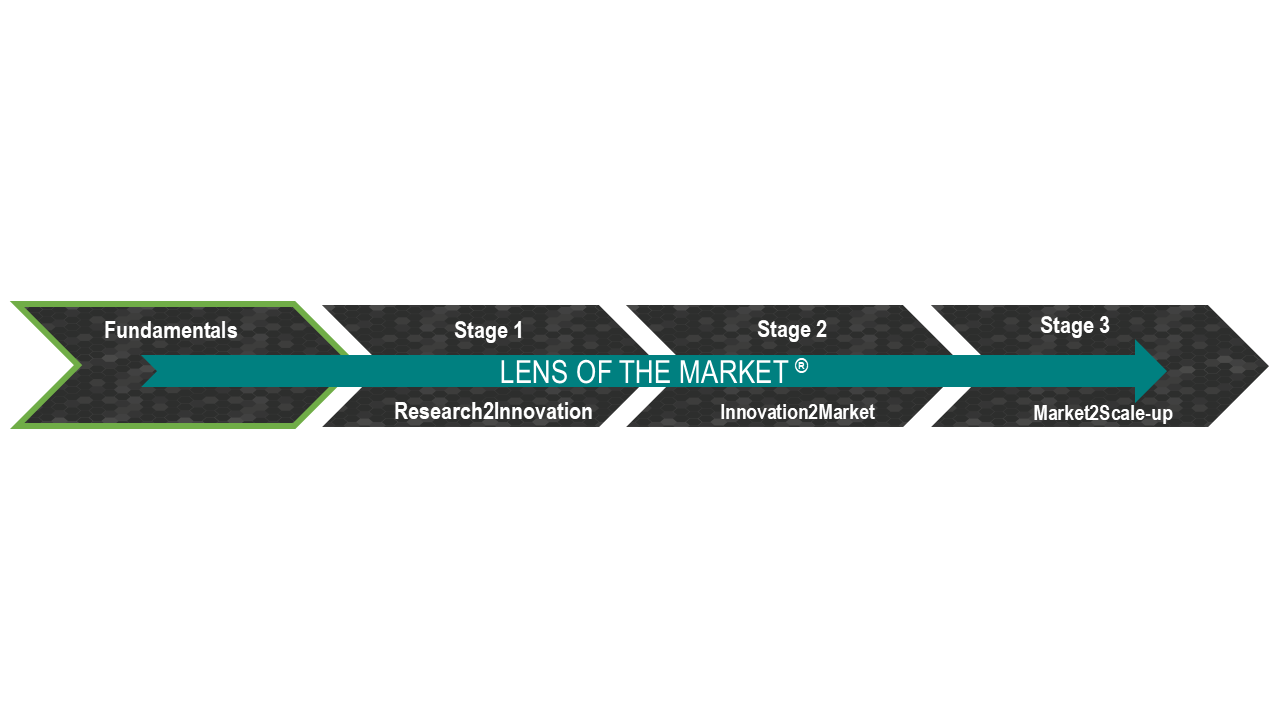Start your STEM business journey with Lens of the Market Fundamentals
Starting a tough tech STEM intensive business is more than simply having what you may think is a great idea. It’s more than carrying out the research and getting a patent to demonstrate that your idea may work. And it is much, much more than simply "pitching" for money.
Success in STEM business requires a detailed understanding of the markets you could serve and determining the best market to serve as a beachhead market. It includes defining the competitive products and challenges in the market and showing how your solution may be just what the market needs to fill a market gap. And it includes building a validated Business Case as a foundation for a Business Model and a Go-To-Market plan.
WHAT is ecosVC's Fundamentals Program? The 4 course sequence was designed to gain the vocabulary and basic principles in four key areas for STEM product success. And it is designed to allow you to go at your own pace, with extensive tough tech examples across multiple markets to give you a leg up in the world of product development. And test your learning with interactive quizzes during and at the end end of each course.
Course 1 Market Segmentation: Know the options and vocabulary for segmenting tough tech markets and how to apply it to your business.
Course 2 Technology Platforms: Define a technology platform, its value and importance and whether your innovation is one - and why that matters
Course 3: Value Propositions: Build a value proposition aligned with the product and market segment that stands out and clearly articulates WHAT you provide, to WHOM, and WHY the market you wish to serve should care.
Course 4 Value Chains - How a market is structured: Build value chains aligned with market segmentation and the value proposition at the market segment, subsegment and addressable market levels.
WHO should take the Fundamentals program? The Fundamentals program was designed to allow scientists, engineers and STEM entrepreneurs to master the essential principles and basic vocabulary that transform technical teams into market-focused product builders with no prior knowledge of market analysis.
So get a leg up in the world of product development with extensive examples across multiple tough tech markets. And test your learning with interactive quizzes during and at the end end of each course. Click the button below to sign up to be notified when Fundamentals launches.
Testimonials from participants in Lens of the Market
“It is extremely relevant and important information for future scientific entrepreneurs. This is information we don’t get to see in science classes. ”
“I believe the training I received is invaluable as a scientist. I would recommend all scientists to go through this process to learn about innovation.”
“I walked in with minimal knowledge about the business world but walked out feeling more confident about translating my research into innovation.”
“I found the discussion absolutely transformational in the way I think about our venture, and what we need to do to move forward.”
“If you want to build your business on half-baked assumptions and anecdotal evidence, then ACCELERATED is not for you. However, if you want to ensure that your startup deserves to exist and is responding to market requirements, filling product gaps and meeting real customer needs then this program will help you get the data to make that case, and push your business way ahead of the competition. ”
“I thought this was very well produced presentation that did a fantastic job of explaining the business/market and the language used”
“To learn that there are some helpful steps that we can follow in order to translate any research fundamental idea into innovation ideas.”
“Thinking about research from a different perspective. I learned a lot about how to approach research problems so that innovation actually happens.”


